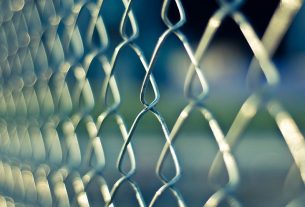Speeding up coronavirus vaccine production and distribution will be a main topic at the end of the week as EU leaders gather via video conference.
“Our priority continues to be to speed up vaccinations across the EU. This means accelerating the authorisation process of vaccines, as well as their production and delivery,” Council President Charles Michel wrote in an invitation letter, emphasising the need to scale up manufacturing capacity in the European Union.
It’s a goal that has been echoed by several member states amid concerns about the bloc’s slow rollout of the vaccines and much criticised procurement strategy.
In a joint letter to the EU Council President on Tuesday, leaders from Lithuania, Poland, Denmark, Belgium and Spain highlighted their concern about EU manufacturing of vaccines.
“Europe’s timely access to sufficient vaccines remains an unsolved challenge,” the letter, published online by the Polish government, states.
“Our key message today is that we urgently need to integrate and strategically steer our value chain to boost our vaccine production capacities in Europe.”
The European Union’s vaccine rollout hit a road bump earlier this year after AstraZeneca, the pharmaceutical company manufacturing the Oxford University coronavirus vaccine, said they could not supply the full amount of promised doses to the bloc in the first quarter.
The row prompted the EU to tighten export controls to prevent vaccines developed in the bloc from going to countries outside member states and the World Health Organisation’s COVAX facility for low and middle-income countries without approval.
Just yesterday, another report from Reuters, citing an EU official, alleged that the company would once again fall short of promised vaccine doses.
But with vaccination viewed as a key tool for exiting the crisis, and with much of Europe under COVID restrictions, many are eager to ramp up capacity. The EU has set what some see as a Sisyphean goal to vaccinate 70% of populations by summer 2021.
France’s health ministry signalled on Tuesday that they expected fewer doses of the AstraZeneca vaccine than initially expected and a later delivery of the Johnson & Johnson vaccine in May, according to AFP.
Meanwhile, Sanofi has said they will help with production of both the Pfizer/BioNTech and Johnson & Johnson vaccines in order to boost European production capacity.
EU Council members will also discuss the emergence of new variants, which are quickly becoming dominant COVID variants throughout the bloc. They are complicating countries’ efforts to bring down infection levels.
Germany recently tightened its border controls as the country aims to significantly reduce COVID transmission and prevent the spread of the variants.
“Restrictive measures on non-essential travel may still be needed to contain the spread of the virus,” Michel said.
“Nevertheless, the flow of goods and services in the single market, as well as the role played by the green lanes, remain essential.”
EU leaders will also discuss security, defence and EU-NATO cooperation on Friday.
euronews.com
pixabay


















